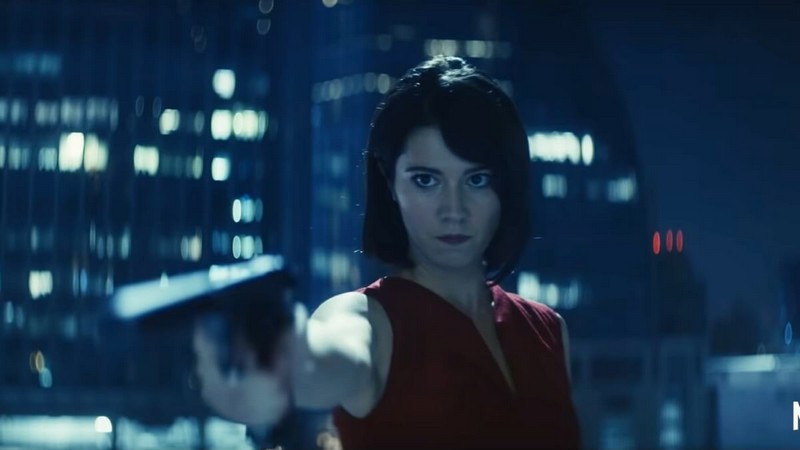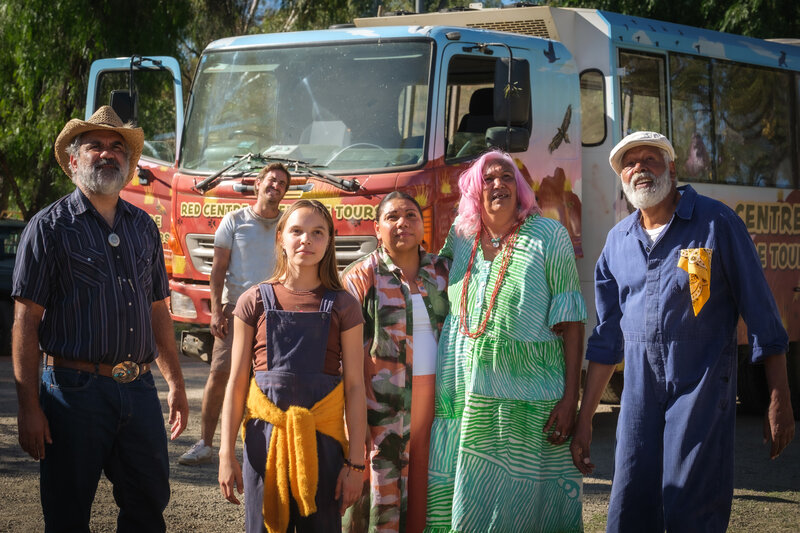I’m starting to suspect at some point during the 2020 lockdowns, a bunch of screenwriters all had the same idea: a highly trained assassin is redeemed through a connection with a child. Cut off from regular contacts, they all pitched this same idea – and many were accepted. That could explain the slew of movies on this theme in recent times. And I’m guessing Umair Aleem was one of those screenwriters, because his script for Kate is squarely in that zone.
Of course, it’s not a new idea (see: Luc Besson’s Leon: The Professional). It’s also a sub-set of a broader genre – highly trained assassin is redeemed through human connection (see: La Femme Nikita or Red Sparrow). But just since the start of 2020 we’ve had Extraction with Chris Hemsworth and Gunpowder Milkshake with Karen Gillam; not to mention several close cousins like Anna and Die in a Gunfight. So do we really need another? Well “need” is a strong word, but I certainly enjoyed Kate, even if it was all very familiar.

In common with its cousins, Kate takes place in an “exotic” locale – Japan (mostly Tokyo with a short prologue in Osaka). It tries to meld a straight-ahead Western action movie with Japanese elements (including anime and bushido). While others have done it better (Jim Jarmusch’s Ghost Dog, for example), Aleem and director Cedric Nicolas-Troyan (The Huntsman: Winter’s War) generally manage to get the balance right.
The Osaka prologue introduces Kate (Mary Elizabeth Winstead), a crack assassin. Though it doesn’t go exactly as planned, she takes down an anonymous target (she never knows who the targets are) and moves on. Her handler Varrick (Woody Harrelson) then sets her a new task in Tokyo. While waiting for instructions, Kate has a drink at the bar of her hotel. There she meets and falls for the charming Stephen (Michiel Huisman). When the call for the job arrives, she sends Stephen on his way and heads to the site. The target this time is an older man – who turns out to be yakuza boss Kijima (Jun Kunimura). But a sudden attack of sickness washes over Kate, and she botches the job.
In hospital, Kate discovers she’s been poisoned with polonium-204 and is done for. But with only 24 hours to live, she’s determined to find who did this to her. She quickly figures out Stephen was involved. When she finds him though, it seems he’s only a pawn in a larger game. Stephen spills the beans about the Kijima crime family and a man named Sato (Koji Nishiyama) who recruited him. Kate tracks down and kills Sato, but gathers enough information to lead her to Kijima’s niece Ani (Miku Martineau). She kidnaps Ani in order to lure Kijima into the open. But she soon finds the resourceful Ani is a greater asset than being just bait.
The film basically takes place over one night, so it’s all darkness and shadows as Kate and Ani seek the elusive Kijima. It doesn’t really show off the best side of Tokyo, but there’s no doubt where we are. Along the way, they naturally get into a number of “scrapes” with the bad guys. These encounters are exceedingly violent, and include a number of particularly brutal killings – so be warned. Still, assuming you can stomach that kind of thing, Nicolas-Troyan zips things along at pace with barely a beat between the action sequences. The dialogue however is pretty stilted, even if that’s only to be expected.
Mary Elizabeth Winstead (Birds of Prey) appears in just about every scene of the film. It’s a good thing then that she makes for a surprisingly terrific action hero. She carries off the physical sequences with assurance, and gives a strong reading in the quieter moments of the film. Her performance here even has something reminiscent of Sigourney Weaver in Alien about it. Miku Martineau makes for a fine understudy as Ani. Woody Harrelson (Zombieland: Double Tap) is suitably grizzled as the world-weary Varrick. But Jun Kunimura (Kill Bill Vol 1) provides the film’s grace note as the philosophical crime bass Kijima.
Although Kate could never be described as original, it’s an engaging entry in a crowded field. The combination of the Japanese elements, the generally fine acting and Nicolas-Troyan’s energetic direction make this a cut above the everyday. So while it won’t be winning any awards, it’s enjoyable in its on its own terms.
David Edwards
Other reviews you might enjoy:
- LBJ – movie review
- War for the Planet of the Apes – movie review
- Solo: A Star Wars Story – movie review

David Edwards is the former editor of The Blurb and a contributor on film and television





